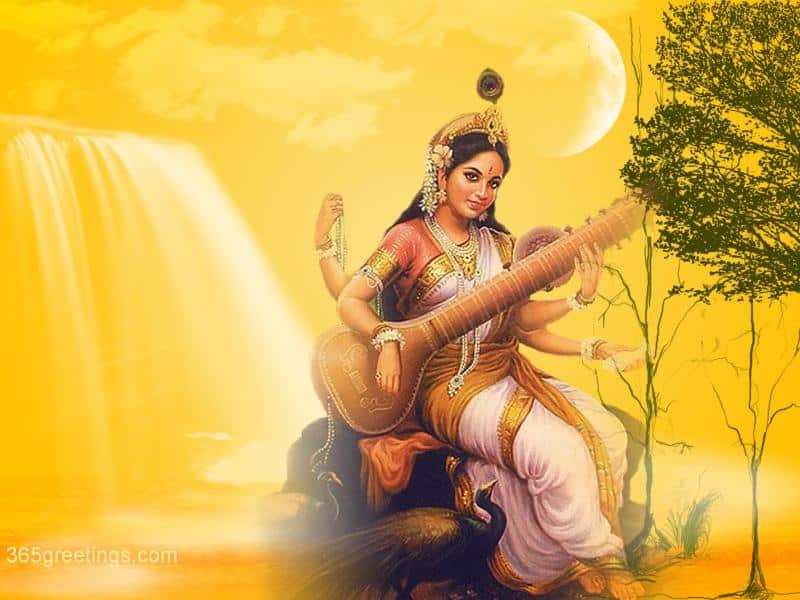Saraswathi is a Hindu goddess, part of the trinity with Lakshmi and Parvati; she is a representation of knowledge, music, arts, wisdom, and learning. The three forms of the female goddess assist Vishnu, Shiva, and Brahman their partners while they sustain the universe . The goddess is revered by Jains and Buddhists as well as Hindus.
Saraswathi’s name is meaningful; Sara means essence, Sva means oneself so together they mean essence of oneself. It means to fill oneself with knowledge like with water and this goes further into her ancient mythological status as a divine river goddess, the best of river mother goddesses from the Rigveda.
Saraswathi is also meant to refer to a cleansing knowledge or knowledge that purifies the essence of a person, which can also refer to enactment of the arts such as music, dancing, language, and eloquence.
Saraswathi is usually depicted with four arms holding objects: a book (the vedas, a crystal mala or rosary (represents the power of meditation, inner reflection, and spirituality), a pot of water (the power of purification), and a musical instrument (typically a veena representing arts and sciences). Saraswathi is also associated with anuraga, the love for the rhythm of music which represents all feelings and emotions expressed through music. Saraswathi is associated with the swan which is often located at her feet and is said to discriminate between water and milk, drinking only milk as a sign of discernment. The swan is also a symbol of spiritual purity and perfection.
Saraswathi is also worshipped in the areas surrounding India and has influenced many of the following countries: Myanmar, Japan, Cambodia, Thailand, and Indonesia. She also has a festival in Bali that has a long history. She is also worshipped in various places in India.
Saraswathi is a popular god worshipped in modern times and especially in southern India can often be seen as revered deity in daily life.

